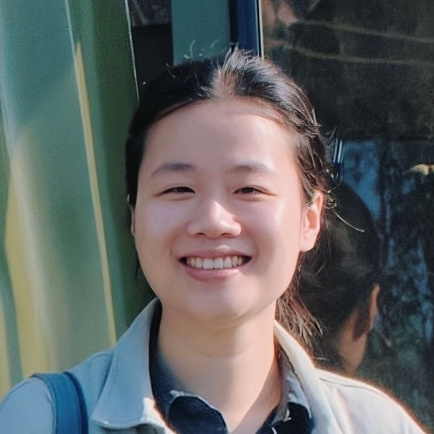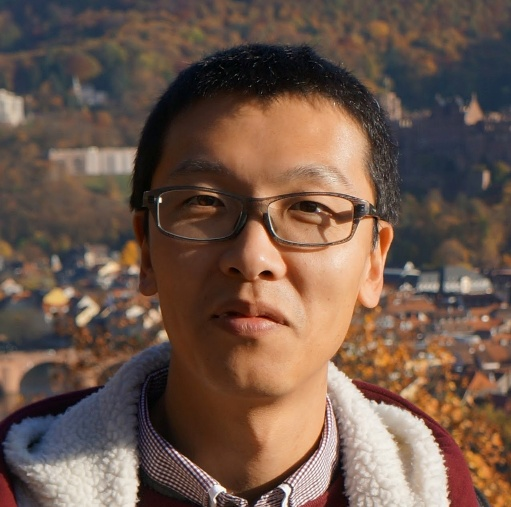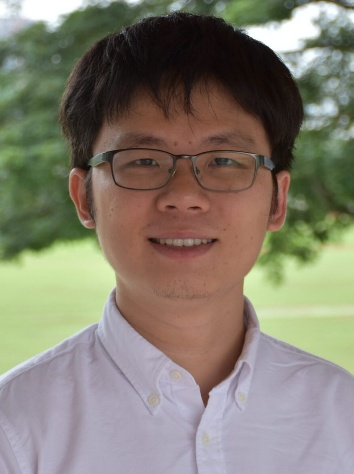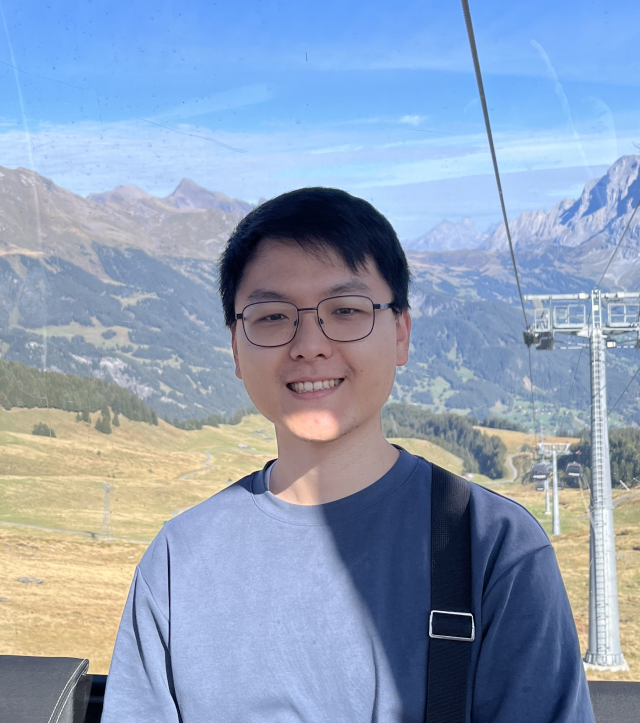1. Yian Ma
Assistant Professor
University of California, San Diego(UCSD)
Title: Reverse diffusion Monte Carlo
Abstract: I will introduce a novel Monte Carlo sampling approach that uses the reverse diffusion process. In particular, the intermediary updates—the score functions—can be explicitly estimated to arbitrary accuracy, leading to an unbiased Bayesian inference algorithm. I will then discuss how to use this idea to improve sampling in the diffusion models via reverse transition kernels.

Bio: Yian Ma is an assistant professor at the Halıcıoğlu Data Science Institute, UC San Diego, where he serves as the vice chair in charge of the graduate programs. Prior to UCSD, he spent a year as a visiting faculty at Google Research. Before that, he was a post-doctoral fellow at UC Berkeley, hosted by Mike Jordan. Yian completed his Ph.D. at University of Washington. His current research primarily revolves around scalable inference methods for credible machine learning, with application to time series data and sequential decision-making tasks. He has received the Facebook research award, the Stein fellowship, and the best paper awards at the Neurips and ICML workshops.
2. Yingzhen Li
Associate Professor
Imperial College London
Title: Variational Uncertainty Decomposition for In-Context Learning
Abstract: As large language models (LLMs) gain popularity in conducting prediction tasks in-context, understanding the sources of uncertainty in in-context learning becomes essential to ensuring reliability. The recent hypothesis of in-context learning performing predictive Bayesian inference opens the avenue for Bayesian uncertainty estimation, particularly for de- composing uncertainty into epistemic uncertainty due to lack of in-context data and aleatoric uncertainty inherent in the in-context prediction task. However, the decomposition idea re- mains under-explored due to the intractability of the latent parameter posterior from the underlying Bayesian model. In this work, we introduce a variational uncertainty decomposi- tion framework for in-context learning without explicitly sampling from the latent parameter posterior, by optimising auxiliary inputs as probes to obtain an upper bound to the aleatoric uncertainty of an LLM’s in-context learning procedure. Through experiments on synthetic and real-world tasks, we show quantitatively and qualitatively that the decomposed uncer- tainties obtained from our method exhibit desirable properties of epistemic and aleatoric uncertainty.

Bio: Yingzhen Li is an Associate Professor in Machine Learning at the Department of Computing, Imperial College London, UK. Before that she was a senior researcher at Microsoft Research Cambridge, and previously she has interned at Disney Research. She received her PhD in engineering from the University of Cambridge, UK. Yingzhen is passionate about building reliable machine learning systems, and her approach combines both Bayesian statistics and deep learning. She has worked extensively on approximate inference methods with applications to Bayesian deep learning and deep generative models, and her work has been applied in industrial systems and implemented in deep learning frameworks (e.g. Tensorflow Probability and Pyro). She regularly gives tutorials and lectures on probabilistic ML and generative models at machine learning research summer schools, as well as invited tutorials on Advances in Approximate Inference at NeurIPS 2020 and UAI 2025. She was a co-organiser of the Advances in Approximate Bayesian Inference (AABI) symposium in 2020-2023, as well as many NeurIPS/ICML/ICLR workshops on topics related to probabilistic learning. She is a Program Chair for AISTATS 2024 and a General Chair for AISTATS 2025 and 2026. Her work on Bayesian ML has also been recognised in AAAI 2023 New Faculty Highlights.
3. Minh-Ngoc Tran
Associate Professor
The University of Sydney
Title: Intrinsic natural gradient: definition, computation and applications
Abstract: The Euclidean natural gradient method is a widely used tool in statistical optimization. We extend the concept of natural gradient to a Riemannian manifold and develop a computationally efficient method for computing it. The method is fully intrinsic, avoiding reliance on an ambient Euclidean space. We apply the method to the Variational Bayes and Maximum Likelihood Estimation problems, where the parameters lie on a manifold. We establish theoretical convergence guarantees comparable to those of standard stochastic gradient descent, and validate the robustness and efficiency of our approach across a range of learning tasks. Joint work with Dario Draca.

Bio: Minh Ngoc Tran is an Associate Professor of Business Analytics at the University of Sydney Business School. He earned his BSc and MSc in Mathematics from Vietnam National University, Hanoi, before completing a PhD in Statistics at the National University of Singapore in 2012.
His research spans statistical methodology and applied statistics. On the methodological side, he develops Bayesian computation and machine learning techniques, with a particular emphasis on variational Bayes and the integration of emerging quantum computation methods into data analysis. In applied work, he leverages modern statistical approaches to advance studies in cognitive science, consumer behaviour and financial econometrics.
Minh Ngoc’s contributions have been recognised nationally and internationally, with publications in leading statistical journals and conferences. His research has attracted over A$5 million in funding, including three competitive ARC grants, and he is a sought after speaker at both national and international meetings. As an enthusiastic educator, Minh Ngoc adopts a research led, student focused teaching style that consistently earns outstanding feedback.
4. Matias Quiroz
Senior Lecturer
University of Technology Sydney
Title: When Bayes gets hard: Inference in doubly intractable models
Abstract: Bayes gets hard when the likelihood includes an intractable normalising factor, giving rise to doubly intractable models. We propose a signed pseudo-marginal Metropolis–Hastings algorithm with an unbiased block-Poisson likelihood estimator, which handles negativity via importance sampling and comes with finite-sample guarantees. The estimator supports vectorisation and parallelisation, is compatible with correlated pseudo-marginal strategies, and admits heuristic guidelines for tuning its hyperparameters. We demonstrate its superior performance on the Ising model for spatial data and the Kent model for directional data.

Bio: Matias Quiroz is a Senior Lecturer in Statistics at the University of Technology Sydney, a position he has held since 2023. He previously held appointments at Stockholm University and the Central Bank of Sweden. He serves as Associate Editor for the journals Computational Statistics and Data Analysis and Econometrics and Statistics. His research focuses on Bayesian computation and statistical machine learning, with publications in leading journals including Journal of the American Statistical Association, Journal of Computational and Graphical Statistics, and Journal of Machine Learning Research, as well as top conference proceedings such as ICML and AISTATS.
5. Jiajie Zhu
Associate Professor
KTH Royal Institute of Technology
Title: Gradient Flows in the Joint and Marginal Entropy-Regularized Transport Geometry for Sampling and Inference
Abstract: Many problems in machine learning and statistics can be cast as abstract flows of probability measures, such as Otto's Wasserstein gradient flows. Such problems appear in sampling, variational inference, generative modeling, etc. In this talk, I will focus on the computational aspects of gradient flows, building upon the mathematical foundation of optimal transport and PDE analysis, specifically on entropy-regularized transport for gradient flows. Historically, there are two ways of regularizing transport using entropy: joint and marginal. The former gave rise to the Sinkhorn iteration while the latter generates the Wasserstein-Fisher-Rao (a.k.a. Hellinger-Kantorovich) distance. In this talk, I will present some concrete computational algorithms motivated by the analysis of entropy-regularized transport gradient flows, with applications to sampling, inference, and optimization.

Bio: Jia-Jie Zhu (https://jj-zhu.github.io/) is an applied mathematician, machine learner. He heads a research group at the Weierstrass Institute, Berlin, Germany, and is an incoming tenured associate professor in mathematics at the KTH Royal Institute of Technology in Stockholm, Sweden. Previously, he worked as a postdoctoral researcher in machine learning at the Max-Planck-Institute for Intelligent Systems, Tübingen. He received his Ph.D. training in optimization at the University of Florida, USA, and a B.Sc. degree in mathematics from Fudan University, China. He is interested in the intersection of machine learning, analysis, and optimization, on topics such as (PDE) gradient flows of probability measures, optimal transport, and robustness of learning and optimization algorithms.
6. Chi Zhang
Professor
Institute of Vertebrate Paleontology and Paleoanthropology, Chinese Academy of Sciences
Title: Bayesian tip dating approach
Abstract: Dating the tree of life is fundamental for understanding the evolutionary process and co-evolution of life and environment. Traditional stepwise approach does not take full use of the data and fails to account for uncertainties from various sources. The recently developed Bayesian total-evidence tip-dating approach has the advantage of combining morphological characters and geological ages from fossils and morphological and molecular data from extant taxa, and properly incorporates uncertainties from data and parameters in the statistical inference. The method utilizes the fossilized birth-death process for the timetree, the relaxed clock model for the evolutionary rates, and the Markov process for the character changes. This tip-dating approach has been productively applied to various biological groups to study their evolution, including birds, pterosaurs, and mammals.

Bio: Chi Zhang is a research professor in the Institute of Vertebrate Paleontology and Paleoanthropology, Chinese Academy of Sciences. His research interest is applying Bayesian statistics in paleontology and molecular evolution to infer evolutionary histories (e.g., divergence times, evolutionary rates and diversification patterns), and evaluating the properties and performance of the methods using biological data and simulations. He develops phylogenetic methods in the software packages MrBayes and BEAST2 and studies the microevolution of several vertebrate groups.
7. Kamélia Daudel
Assistant Professor
ESSEC Business School
Title: Learning with Importance Weighted Variational Inference
Abstract: Several popular variational bounds involving importance weighting ideas have been proposed to generalize and improve on the Evidence Lower BOund (ELBO) in the context of maximum likelihood optimization, such as the Importance Weighted Auto-Encoder (IWAE) and the Variational Rényi (VR) bounds. The methodology to learn the parameters of interest using these bounds typically amounts to running gradient-based variational inference algorithms that incorporate the reparameterization trick. However, the way the choice of the variational bound impacts the outcome of variational inference algorithms can be unclear. In this talk, we will present and motivate the VR-IWAE bound, a novel variational bound that unifies the ELBO, IWAE and VR bounds methodologies. In particular, we will provide asymptotic analyses for the VR-IWAE bound and its reparametrized gradient estimator, which reveal the advantages and limitations of the VR-IWAE bound methodology while enabling us to compare of the ELBO, IWAE and VR bounds methodologies. Our work advances the understanding of importance weighted variational inference methods and we will illustrate our theoretical findings empirically.

Bio: Dr. Daudel is an Assistant Professor of Statistics at ESSEC Business School. Prior to that, she was a postdoctoral researcher in the Department of Statistics at the University of Oxford working with Arnaud Doucet. Her research lies in the field of Approximate Inference. In particular, she is interested in Variational Inference methods which go beyond the commonly-used parametric variational distribution framework and which involve flexible variational bounds. Dr. Daudel received the first prize of IP Paris Best Thesis Award 2022 for her thesis.
8. Alexandre Bouchard Côté
Professor
University of British Columbia
Title: Computing Normalization Constants on GPUs
Abstract: Over the years, several algorithms have been developed to tackle normalization constant estimation. A handful of those have passed the test of time thanks to their capacity to beat the curse of dimensionality in many realistic scenarios: I will focus here on Annealed Importance Sampling (AIS) and Sequential Monte Carlo (SMC) methods. I will describe new theoretical analysis of these algorithms, and methodological developments supported by this analysis. Of particular interest is a novel approach to GPU deployment.

Bio: Alexandre Bouchard is a professor of statistics at the University of British Columbia. He received his PhD in computer science from the University of California, Berkeley. His research focuses on computational Bayesian methods and applications in cancer genomics and phylogenetics. https://www.stat.ubc.ca/~bouchard/index.html
9. Xin Tong
Associate Professor
National University of Singapore
Title: Diffusion models for high dimensional distributions
Abstract: Diffusion model is a popular tool to generate new data samples. However, rigorous understanding of diffusion model is still lacking. One issue is how to train these models for high dimensional problems as score function estimation is subject to the curse of dimension. Another issue is how to avoid the memorization effect, where the diffusion model is bound to generate an exact copy from the training data. We will provide solutions to the first issue by focusing on high dimensional distributions with sparse dependence. We will leverage the sparse dependence to provide a local estimation of the score functions. As for the second issue, we will modify the diffusion model in the final stage and generate new samples close to the same manifold where the training data is originated.

Bio: Xin Tong is an associate professor in the Department of Mathematics at the National University of Singapore. He earned his Ph.D. from Princeton University in 2013. Prior to his current role, he was a postdoctoral researcher at the Courant Institute of New York University. As an applied mathematician, his research spans uncertainty quantification, machine learning, and operations research. His primary expertise lies in the development and analysis of stochastic algorithms.
10. Yuling Jiao
Professor
Wuhan University
Title: Provable Diffusion Posterior Sampling for Bayesian Inversion
Abstract: Diffusion model has been proved to be a powerfull tool for Bayeian inverse problem. Instead of approximate the time-dependent likelihood adhockly in the literature, we directly calculate the posterior score utilizing a restricted Gaussian oracle via Langevin Monte Carlo dynamics. The resulted posterior score can then be used to generate samples by solving the inverse diffusion process. We bound the error of the estimated posteroir distribution and underlying truth in TV distance. We numerically demonstrate the effectiveness of our method in solving various image inverse problem, including linear and nonlinear deblur problems. The results reveal a better performance in PSNR and SSIM of our method, compared with both traditional variational method and the recent diffusion posterior sampling method.

Bio: Yuling Jiao is a Professor and PhD Supervisor serving as the Associate Dean at the School of Artificial Intelligence, Wuhan University. He has been selected for the National Young Talents Program. His primary research focuses on machine learning and scientific computing, with recent emphasis on the mathematical foundations of deep learning. He has published over thirty papers in flagship journals and conferences across computational mathematics, applied mathematics, statistics, electronic engineering, and artificial intelligence, including:SIAM journals (5 papers)、Appl.Comput. Harmon. Anal.(2 papers)、Inverse Probl. (2 papers)、Ann. Stat.(3 papers)、J.Amer. Statist. Assoc. (2 papers)、IEEE Trans. Inf. Theory (5 papers)、IEEE Trans. Signal Process. (3 papers)、J. Mach. Learn. Res. (7 papers)、ICML (3 papers)、NeurIPS( 3 papers, including one Oral and one Spotlight)、Nat. Commun. He has led several research projects, including a sub-task of the National Key R&D Program of China, an NSFC General Program project, and a series of industry collaboration projects with Huawei.
11. Harrison Bo Hua Zhu
Assistant Professor
University of Copenhagen
Title: Recurrent Memory for Online Interdomain Gaussian Processes
Abstract: We propose a novel online Gaussian process (GP) model that is capable of capturing long-term memory in sequential data in an online learning setting. Our model, Online HiPPO Sparse Variational Gaussian Process (OHSVGP), leverages the HiPPO (High-order Polynomial Projection Operators) framework, which is popularized in the RNN domain due to its long-range memory modeling capabilities. We interpret the HiPPO time-varying orthogonal projections as inducing variables with time-dependent orthogonal polynomial basis functions, which allows the SVGP inducing variables to memorize the process history. We show that the HiPPO framework fits naturally into the interdomain GP framework and demonstrate that the kernel matrices can also be updated online in a recurrence form based on the ODE evolution of HiPPO. We evaluate OHSVGP with online prediction for 1D time series, continual learning in discriminative GP model for data with multidimensional inputs, and deep generative modeling with sparse Gaussian process variational autoencoder, showing that it outperforms existing online GP methods in terms of predictive performance, long-term memory preservation, and computational efficiency.

Bio: Harrison Bo Hua Zhu is an assistant professor in the Health Data Science and AI Section at the University of Copenhagen. Previously, he did his PhD at Imperial College London under the supervision of Professor Seth Flaxman and Professor Yingzhen Li. Harrison's research focuses on Bayesian machine learning methodology with applications to public health, particularly infectious diseases.

